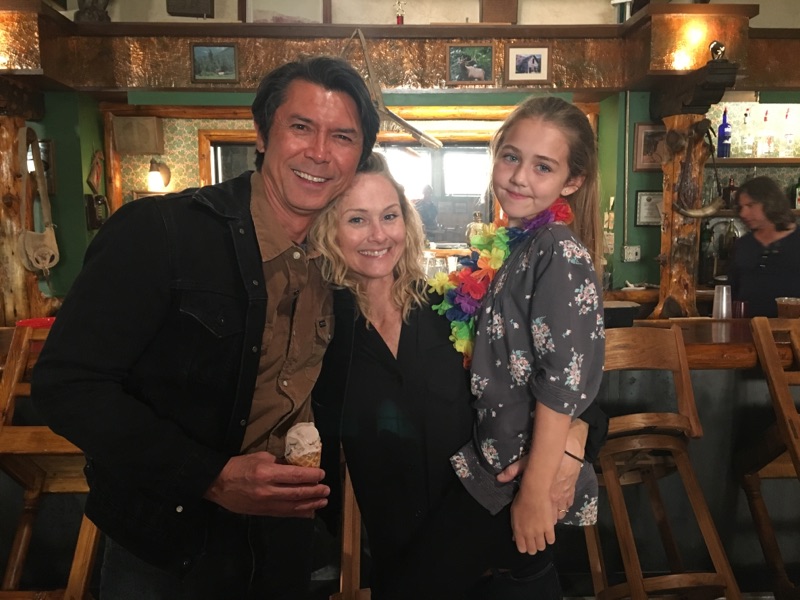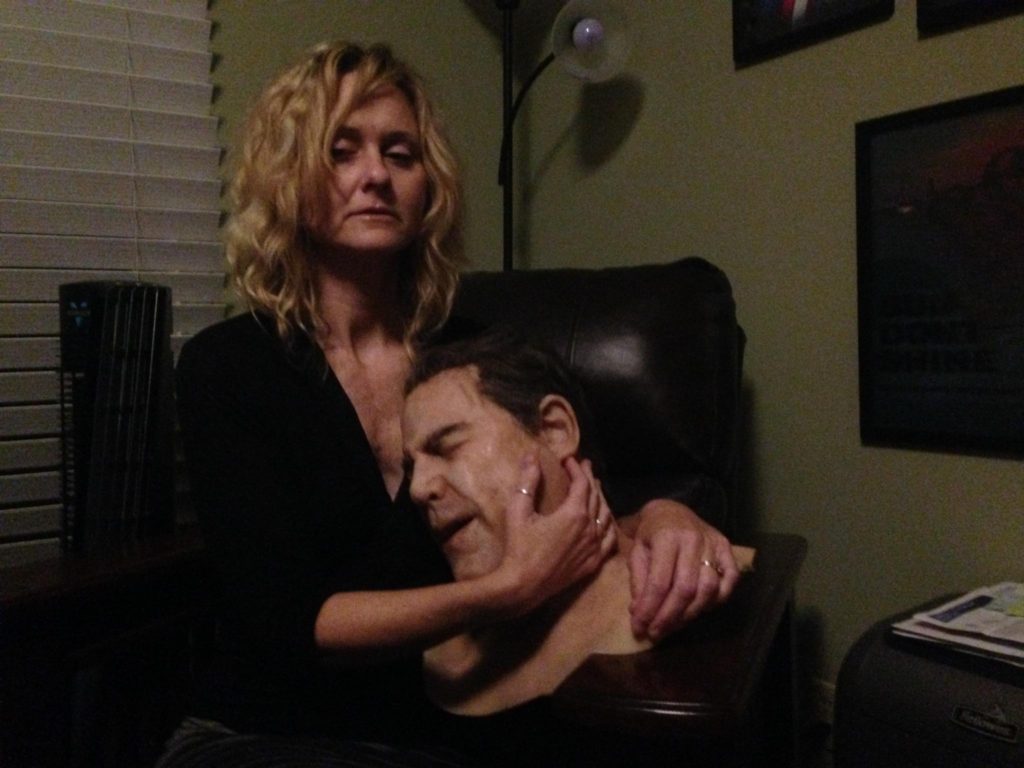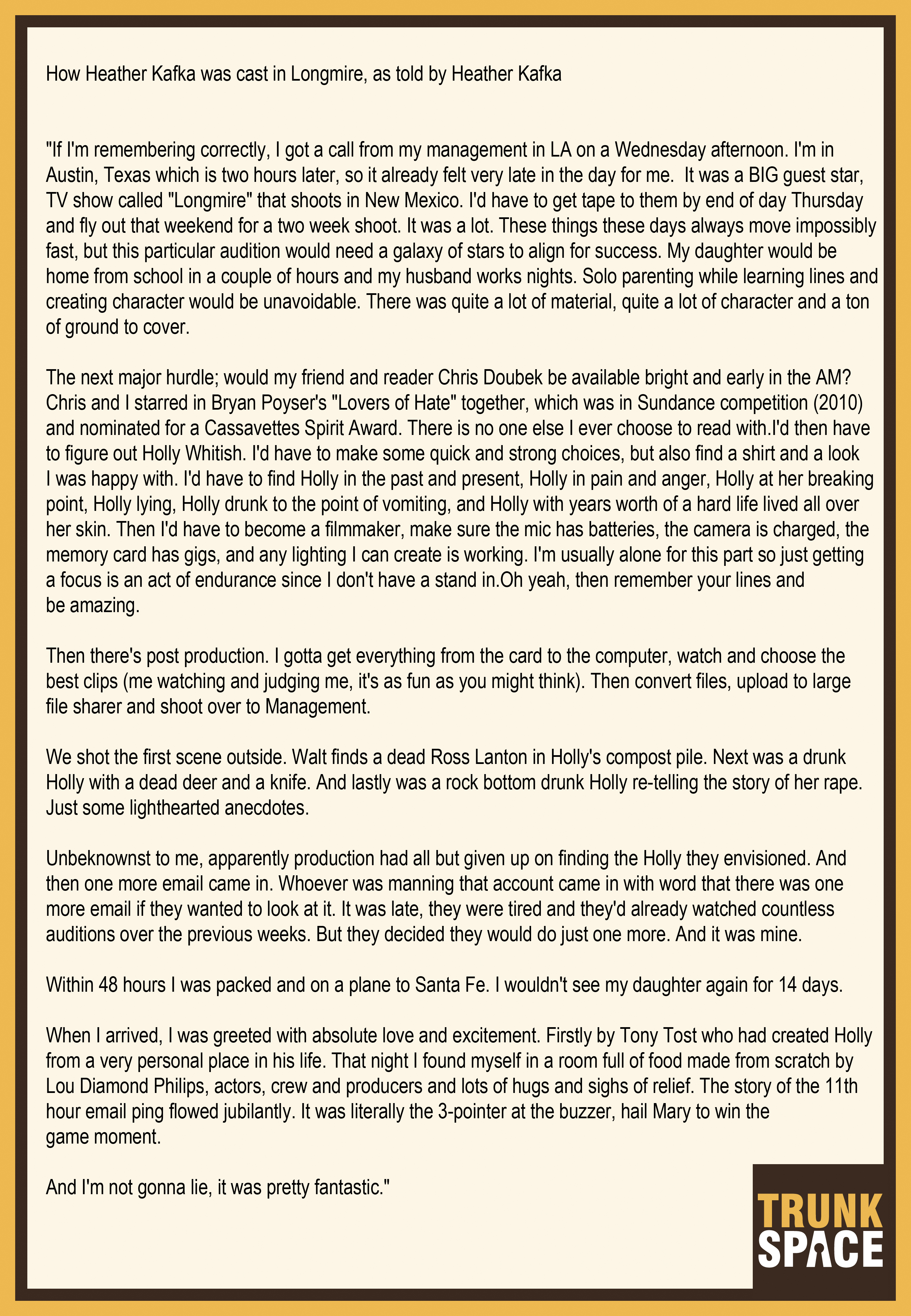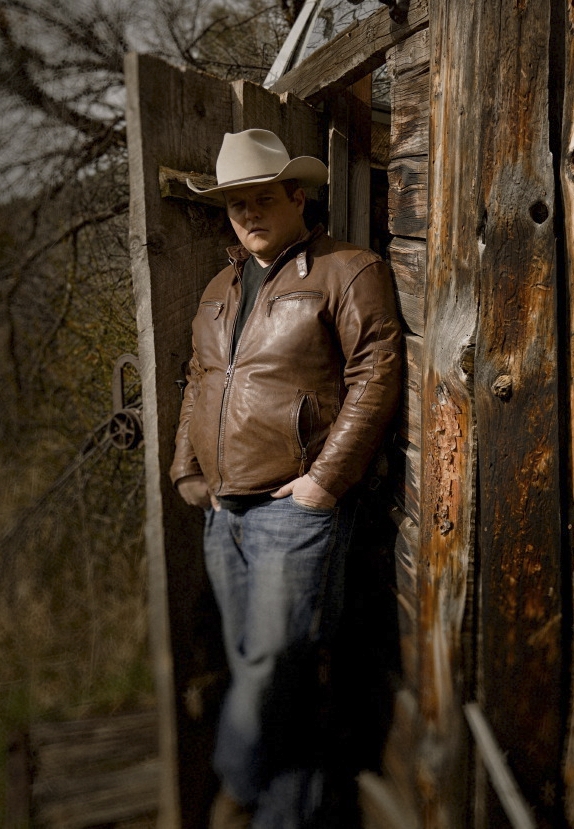
* This feature originally ran 04/19/17
There are some actors who just steal the scene and captivate viewers regardless of who else is in the scene with them. The on-camera dazzling is never done intentionally. It is the actor’s commitment to the part and pledge to the craft that shines a spotlight on the performance, forcing those at home to pay attention. They exist in a fictional world, but play their character as an authentic resident of the imaginary zip code that we, the viewers, visit as voyeuristic tourists.
One of those actors… one of our favorite actors… is Adam Bartley. As The Ferg on the long-running series “Longmire,” Bartley has been playing the deputy everyman with understated precision for five (soon to be six) seasons. The series is currently in production in Santa Fe, New Mexico, which is where we caught up with the Minnesota native.
We recently sat down with Bartley to discuss how the show has changed his life, its pop culture legacy, and his favorite episode thus far.
TrunkSpace: When did you realize that The Ferg went from character to fan favorite character?
Bartley: I don’t know. I think the fans love every character. They’re just so loyal and incredible. But, as far as Ferg is concerned, I think in the first season… I think it was around the third episode when Ferg turned his badge in. When Ferg turned his badge in and said “I’m just not made for this… I can’t do this” and the Sheriff said, “Listen, Ferg, I hired you for two reasons. The first one was because of your father.” And I say, “What’s the other one?” And the Sheriff says, “Well, I’m still waiting to find out.” I think that moment helped people to really connect with Ferg in the sense of how similar he is to so many people and so many people’s paths. You’re not always going to show up and be the best at what you do all of the time. It’s a kind of an everyman availability for audiences and I think that’s what latched people on… they saw a lot of themselves in the character and started to root for Ferg immediately from them on. And then of course, there’s the moment when I think the audience found out Ferg is in love with Cady Longmire.
TrunkSpace: That episode definitely felt like Ferg’s coming out party in terms of revealing him to have various layers, especially when we see him react so emotionally to Cady’s accident.
Bartley: Yeah. That’s great. That was a really incredible episode. That’s absolutely right. That piece… you’re seeing something beyond a sort of loyal, hardworking, trying-to-please-the-Sheriff kind of deputy. You’re seeing a person who has feelings and who you can relate to.
TrunkSpace: From an acting standpoint, what for you has been the most exciting thing about the character’s growth over the life of the series? What were you most excited to work on?
Bartley: Well, any time I’m working in a scene where it’s just Walt and I, that’s always… I love that relationship. Rob Taylor is a very good friend and we have a really good sort of chemistry as friends on and off camera. I really love watching the evolution of that relationship because for Ferg, the Sheriff is sort of the father figure he, I think, always wanted. He just tries to please him and make him proud every day. And so to be able to play in that space is really challenging and exciting.
I would say my favorite episode that I’ve worked on in the first five seasons has been when I get physically apprehended and beat up by the mob and I have to walk to some diner and call Walt. He comes and we sit down and just playing in that scene was really, really powerful acting and he really helped bring that out. I’ve lost my badge. I’ve lost my gun. I’ve been had and I’ve failed again. It’s hard to fess up when you fail and it’s hard to acknowledge that you fail, especially to the Sheriff.
TrunkSpace: Coming from a theater background, when you first started working in those scenes with Robert… he’s so understated and quiet in his delivery whereas in theater you’re taught to 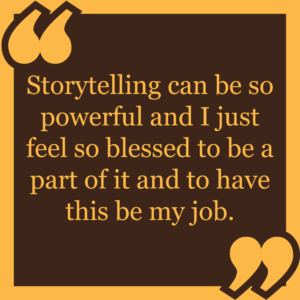 project… did that take some getting used to?
project… did that take some getting used to?
Bartley: It’s funny that you say that. I actually talk about this a lot, including last night and a couple of days before. Yeah, that’s one of the great things about this show for me is that it has been an on-camera education in ways that you could never get in school or anywhere else. A lot of that has to do with that when I showed up, coming from the theater, I had been rehearsing my first scene for the pilot and was just so excited and I was all ready to go. I was speaking somewhat loudly and theatrically and told the Sheriff, “Hey, listen I’m so sorry I’m late… it will never happen again!” (Laughter) In the first rehearsal, Rob… barely audible. He just sort of mutters his line to me and walks away. It was really powerful. It was a huge “wow” moment for me because the challenge, I think, on camera for any actor coming from the theater is believing that your most simple, your most honest, open, simple true reaction to any situation is enough. That people are going to find that interesting, without you doing anything more than you saying the line. Obviously Rob Taylor has been in the business for a very long time and figured that out 30 years ago, but I was figuring it out on the fly. It’s been an incredible sort of Petri dish this show, playing around with that sort of trust in myself and in terms of getting it down to the most simple truth in every scene.
TrunkSpace: It’s funny that you said Robert was barely audible because he’s so patient and soft in scenes sometimes that it’s easy to imagine him being difficult to mic.
Bartley: (Laughter) You get used to it. It’s true. We’ve always had good sound mixers. Always. Yeah, it’s so nice to not have to get every word out to the world. It’s nice for you to be discovered… that what you’re saying is being discovered and heard for the first time.
TrunkSpace: When you landed the part, how much of your character did you base on the source material from the books?
Bartley: None, actually. No. I read “The Cold Dish,” Craig Johnson’s book, and kind of soaked in the world, but the character The Ferg in that book is very different from the character that I play. I was really interested in sort of creating my own character because the writers for the TV show had really created a new character for The Ferg. But, I wanted to make sure that I was in the world.
TrunkSpace: We discovered the show late in its run thanks to the wonders of binge watching. It takes hold of you and you get sucked in very easily. That being said, how can so much terrible stuff happen in one small Wyoming county!?!?
Bartley: (Laughter) I know. Luckily Wyoming itself is not that crime-ridden, but in our Wyoming, things have not been very good. (Laughter)
TrunkSpace: Other than relocating during production, how has the series impacted your life and career the most?
Bartley: Wow. Well… this series has allowed me to realize a dream of mine. To be on camera. And it’s a dream that didn’t really come to me until I was 30 and then it really hit me there with what I wanted to do. I had been doing theater all over the country for 10 years and this not only has changed my life forever in regards to having a seat at the table to be able to do other things… and hopefully having an opportunity to do more things after this… but the singular experience of working on “Longmire” is unlike any show I’ve ever worked on or any play I’ve ever worked on. We are an incredibly close family of people that really love being together and really love working together. I’ll take that with me and I’ll take what I’ve learned from these people, from this incredible group of artists, and how people treat each other and how artists should have space and room to create the greatest version of the stories they’re telling and how establishing great working relationships up front on new projects… how that pays dividends and how it shows up on camera. It’s starkly different from other shows that don’t have those elements. We’re lucky to have an incredible group of producers that from the very first moment on the pilot set the tone for how this was going to go. It’s just not always that way. There’s a lot of other ways people go about doing this business, but as I go forward, that’s the best gift… taking what I’ve learned from this show and these people and applying it to everything I do going forward.
And the other thing is the fans. All of these incredible, loyal people who just love the stories so much and reach out and come to Longmire Days. They’re so kind. This show has really touched a lot of people. It has really changed lives and that’s so humbling… to know that I’m sitting in a coffee shop and somebody comes up and seeing them with almost tears in their eyes to meet me… it’s like, “Wow!” It’s powerful. Storytelling can be so powerful and I just feel so blessed to be a part of it and to have this be my job.
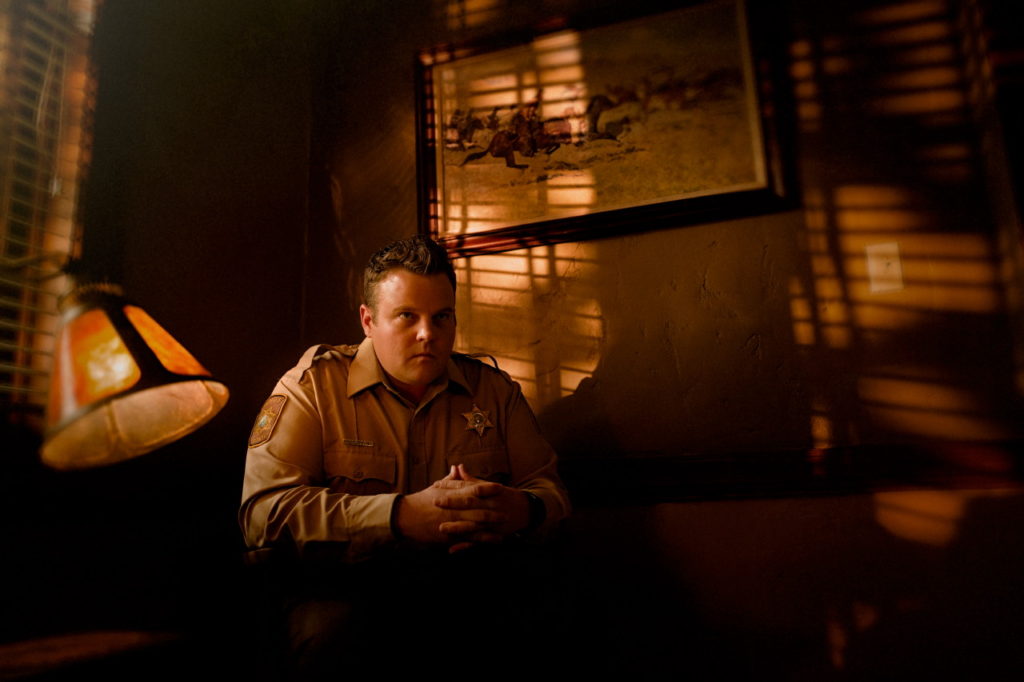
TrunkSpace: And it’s something from a pop culture legacy standpoint that will stand the test of time. The show isn’t going anywhere. New generations will find it.
Bartley: Yeah. No doubt. It’s just a special show for a special time. And the cool part about that is that, even in years from now when I’m missing being down here in Santa Fe and being with this incredible group of people, the wonderful thing is that “Longmire” is still going to be sitting there on Netflix. It’s still going to be sitting there and people can watch it whenever they want. They’ll have new viewers every day. In that way, it’s being sort of aired for the first time every single day.
TrunkSpace: It is crazy to think about now because there was a time when a show would air and you might catch it in a rerun or in syndication, but most shows just sort of disappeared. That’s not how it works nowadays, especially for shows as popular as “Longmire.”
Bartley: They live on. It’s so unique to this time and to this Golden age of television. There’s so much content and people will keep discovering it. That’s wonderful.
TrunkSpace: The show has such a rich history of really great guest stars. Was there anyone in particular that came into the show and gave you butterflies or made you feel a bit intimidated to be in a scene with based on their body of work?
Bartley: Well, the thing about our show is that it is a big open-hearted family and everyone that works on the show gets to be a part of it right away and is welcome. So there’s not a lot of intimidation going on around the set. But that being said, when Gerald McRaney and I had a scene together, that was a really interesting day. He’s a powerhouse. He was playing quite the powerhouse on the show as well and he basically gave it to me, in the rehearsal and in the scene, in a classic McRaney kind of way.
We’ve had so many great guest stars. I’ll just say that. Heather Kafka, who played the woman who had all of the deer carcasses… she’s just an incredible actress. One of my favorite people too. There have been so many like her who have come and just lifted the show up. And Mary Wiseman who played my love interest on the show is just a phenomenal actress. She inspires me and we have such a great time working together and such a great connection on camera. She’s quite special to watch.
It’s one after another. I could name 40 names and keep going.
It’s a special place. It’s a special group. We have an incredible crew. Just the best people. When I come to set, it’s saying hi, every day, to 75 people on my way to rehearsal. And then saying goodbye when I leave. That’s every day. There’s a lot of laughter and a lot of closeness, but also a lot of focus as well. A shared focus. It’s a time I’ll never forget.
TrunkSpace: Walt is a classic Hollywood badass. You also appeared in “Justified,” which featured a more modern badass in the form of Timothy Olyphant’s character Raylan. Having been around so many on-screen badasses, what makes a successful one?
Bartley: (Laughter) A good on-screen badass? That’s a good question. I would say keeping things close to the chest. Characters that say as little as necessary and sort of lead with their actions instead of their words. And having physical stature…
TrunkSpace: (Laughter) That helps!
Bartley: Yeah. Physical stature helps.
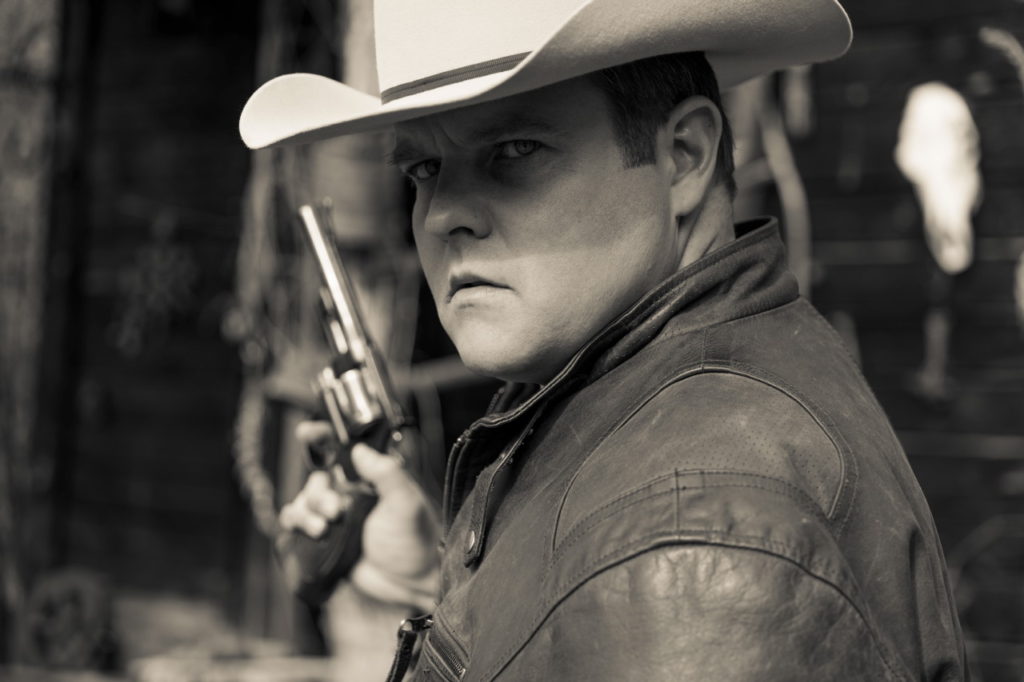
Bartley is currently filming season 6 of Longmire.
Bartley also recently guested as Duke in “This Is Us” on NBC and can be seen on the big screen in the upcoming films “Annabelle: Creation” and “Under the Sliver Lake.”


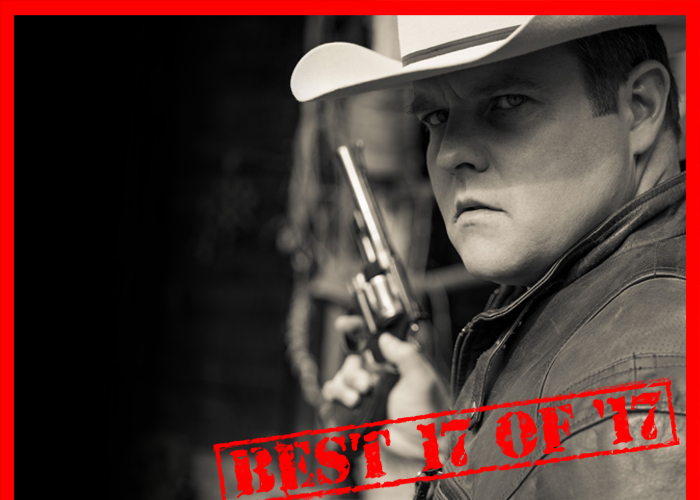

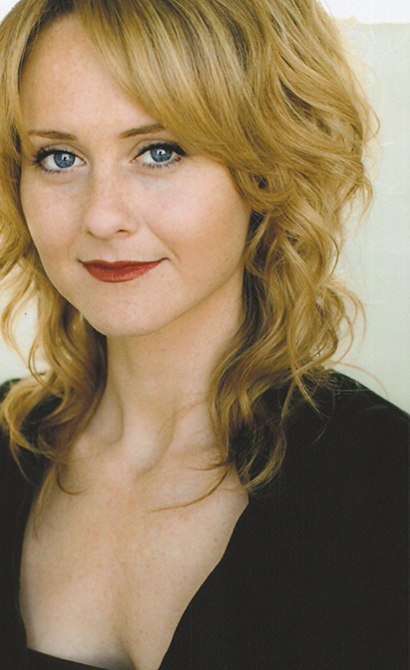 Heather Kafka is the kind of actress who fully and fearlessly immerses herself into a character. She not only becomes the woman inhabiting the fictional world she was cast to portray, but does so with a physicality that is just as much camouflage as it is performance. She doesn’t just star in a project, she lives within it, becoming a part of the narrative in the most organic of ways. It’s a skill set that most actors spend their entire careers striving to obtain and one that seems to come so naturally to Kafka.
Heather Kafka is the kind of actress who fully and fearlessly immerses herself into a character. She not only becomes the woman inhabiting the fictional world she was cast to portray, but does so with a physicality that is just as much camouflage as it is performance. She doesn’t just star in a project, she lives within it, becoming a part of the narrative in the most organic of ways. It’s a skill set that most actors spend their entire careers striving to obtain and one that seems to come so naturally to Kafka. intense and there’s a lot of heavy lifting for you to do right out of the gates. It’s difficult to feel comfortable doing that anyway, let alone when you show up to, in this case Santa Fe, New Mexico, a place where I don’t live and I don’t know and I’m in a hotel that I don’t recognize and I’m not transporting myself to and from set. You really relinquish a lot of your control and it’s very easy, I think, for people who are already in that established situation to sort of just dismiss you, and not necessarily in a cruel way, but you’re just passing through.
intense and there’s a lot of heavy lifting for you to do right out of the gates. It’s difficult to feel comfortable doing that anyway, let alone when you show up to, in this case Santa Fe, New Mexico, a place where I don’t live and I don’t know and I’m in a hotel that I don’t recognize and I’m not transporting myself to and from set. You really relinquish a lot of your control and it’s very easy, I think, for people who are already in that established situation to sort of just dismiss you, and not necessarily in a cruel way, but you’re just passing through.